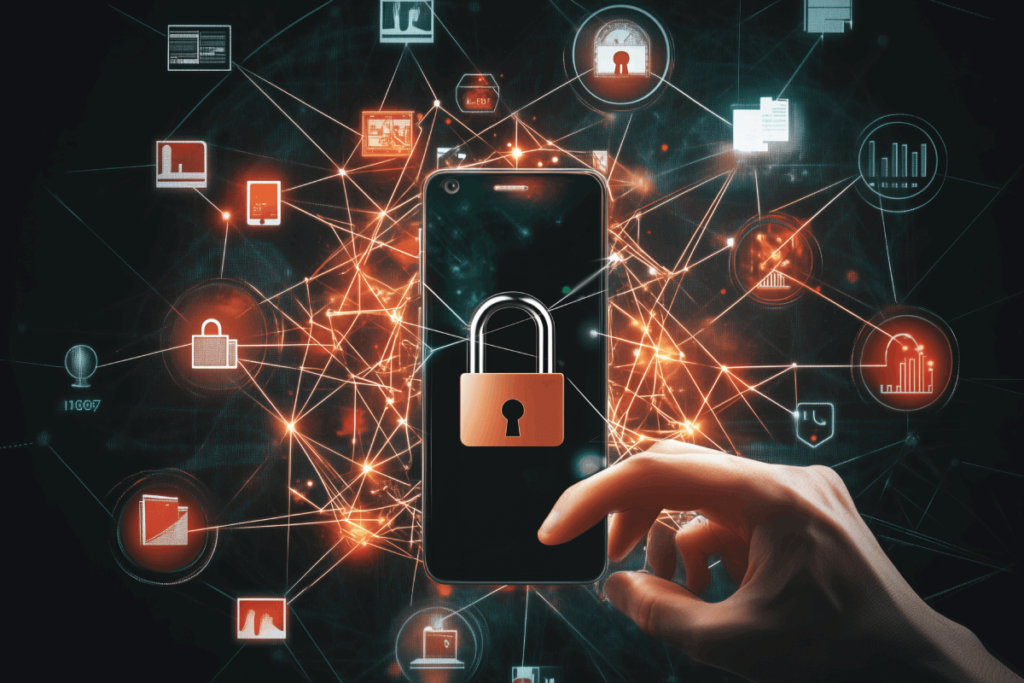
Last Saturday, I was in for a surprise. My phone suddenly lost signal. I tried restarting the phone, switching SIM slots, moving to a different area, but no matter what I did, the dreaded “No Service” message wouldn’t go away. I assumed it was a temporary network issue, but even after hours, I couldn’t connect. When I finally reached out to customer service, I was told that my SIM might be damaged. The whole experience was frustrating. But more than that, it was a wake-up call about how much of my life revolves around my mobile number.
This situation might seem like a minor inconvenience, but our dependence on mobile numbers has become so ingrained that any disruption can cause a domino effect of problems. This reliance isn’t just about communication. It’s about access to our money, work, services, and more. And that’s where the real risk lies.
When Convenience Becomes a Single Point of Failure
In the early days of mobile phones, a number was just a way to connect with others. Fast forward to today, and your mobile number has essentially become your identity. It’s used for everything from logging into emails to making payments to booking appointments to accessing various services. While this convenience is appealing, it has quietly turned your mobile number into a single point of failure.
Imagine losing access to your mobile number. Suddenly, your UPI (Unified Payments Interface) payments won’t work because the system detects a SIM change and requires reactivation. You try to book an appointment online, but the confirmation call or SMS goes to your disconnected number. You want to log into your work accounts, but MFA (Multi-Factor Authentication) codes can’t reach you. Each of these services relies on your mobile number as the sole gateway to access (most of the time). And when that gateway is closed, you’re effectively locked out. In these scenarios, your identity, which is tied so tightly to your mobile number, becomes a liability. This dependency can lead to digital exclusion or disenfranchisement, where losing access to your mobile number might mean losing access to essential services or even your ability to participate fully in society.
The Broader Implications of Over-Reliance
The consequences of losing access to your mobile number extend far beyond immediate inconvenience. Our systems are increasingly dependent on mobile numbers as a form of identity, yet they lack sufficient redundancy or flexibility. Whether it’s a temporary network outage, SIM card damage, or a malicious attack like SIM swap fraud, the outcomes can be severe, affecting personal convenience, economic stability, and security.
1. Financial Transactions at a Standstill
UPI (Unified Payments Interface) has revolutionised financial transactions in India. It is fast, convenient, and widely accepted, making it a favourite for everything from buying groceries to paying utility bills. But it’s almost entirely tied to your mobile number. When my number went down, I needed to make an urgent payment through UPI. The app prompted a reactivation process, requiring verification via an SMS – something I couldn’t receive or send because my number was down. This left me unable to complete the transaction until my mobile service was restored.
Debit card payments were also off the table, as they require an OTP sent via SMS. Even net banking wasn’t an option, since it also demands an OTP sent to my mobile number in addition to transaction password. I had some Buy Now, Pay Later (BNPL) services available, but they aren’t widely accepted, and not everyone has them enabled. Without access to these SMS-based verifications, I was essentially locked out of all traditional payment methods.
This isn’t just about personal inconvenience. A small business owner relying on UPI for daily transactions could find their business at a standstill due to a mobile service disruption. While UPI’s security features are essential to prevent fraud, the reliance on mobile numbers raises concerns about accessibility – what happens to those who temporarily or permanently lose access to their mobile numbers?
In a world moving towards a cashless economy, it is crucial to rethink how we can ensure that users aren’t left without alternatives when their mobile number is compromised. This situation also highlights broader issues of digital exclusion – how do we ensure that people aren’t unfairly cut off from financial systems due to mobile number disruptions?
2. Booking and Appointments: The New Normal
It’s not just financial transactions where mobile numbers are essential. Booking systems, whether for travel, events, or services, increasingly rely on mobile numbers for confirmations, reminders, and notifications. This seems convenient – until it’s not.
During the same weekend when my phone lost signal, I needed to book a doctor’s appointment. The confirmation was sent via a call to my mobile number. With my number out of service, I missed the call and couldn’t confirm the appointment. There was no option to receive the confirmation via email or an alternative contact method.
This reliance on mobile numbers in third party systems is a significant risk. If your mobile number is down and there’s no alternative way to access, it could lead to missed opportunities, wasted time, and unnecessary stress. This underscores the need for more flexible systems. This also highlights a broader risk of digital disenfranchisement, where individuals are excluded from essential services due to over-reliance on a single point of failure.
3. Security and Multi-Factor Authentication (MFA)
MFA is one of the most effective ways to protect your online accounts, where in addition to a password, a second form of verification is required, often sent as an OTP (One Time Password) to your mobile number. While this adds security, it also creates a vulnerability. If your mobile number is compromised, lost, or temporarily inaccessible, you’re locked out of your accounts.
This was another issue I faced when trying to log into my work email and other services that use MFA. While I had backup codes stored, many people don’t, or they’re not aware of how to use them.
The risk isn’t just from losing access to your mobile number. It also comes from malicious actors who can exploit this reliance. SIM swap fraud, where a criminal convinces your mobile service provider to transfer your number to a new SIM, is a growing threat. Once they have your number, they can bypass MFA and access your most sensitive accounts. The consequences of such an attack can be devastating, illustrating how closely tying identity to a mobile number opens the door to significant risks.
The Need for a Shift in Thinking
This over-reliance on mobile numbers isn’t just a technological issue – it’s a systemic one.
Mobile service providers bear a significant part of this responsibility. When I reached out to customer care, the solutions offered were slow and inefficient, highlighting a broader issue of inadequate customer support. But they’re not the only ones who need to step up.
Service providers across the board – whether they’re handling your money, your services, or your work – need to rethink how they approach identity verification and access. Every service that relies on mobile numbers must reconsider their practices. What happens if the mobile number fails? It’s not enough to simply rely on mobile numbers just because they’re convenient. We need to start demanding more resilient systems that provide alternatives when mobile numbers are compromised, ensuring users aren’t left stranded. Preventing digital exclusion must be a core part of this responsibility.
Technological Alternatives
While technological innovation offers potential solutions, it’s important to consider the complexities involved.
One possibility is decentralised identity systems, which allow individuals to control their own identity data rather than relying on a central authority. This approach could potentially offer more resilience, but it also raises questions about security, accessibility, and the potential for new forms of exclusion. How do we ensure that such systems are truly secure and accessible to everyone? And what happens if these decentralised systems fail or are compromised?
Similarly, Multi-factor authentication depends heavily on the robustness of the methods used – whether it’s SMS, email, or app-based verification. Each method comes with its own vulnerabilities and limitations. Can we create a system that is both secure and user-friendly without over-relying on any single method? And what safeguards are necessary to protect users when one method fails?
The idea of multi-channel communication – using email, in-app calls, and in-app notifications as alternatives to SMS – also sounds promising, but it’s not without challenges. These methods require users to manage multiple channels and keep an eye across all of them. How do we balance the need for security with the potential for user fatigue and the complexity of managing multiple communication channels?
There may not be a one-size-fits-all solution. Instead, the focus should be on creating systems that are flexible, resilient, and adaptable to diverse user needs.
Legal and Regulatory Reforms: Protecting the Consumer
Technological innovation must be accompanied by robust legal and regulatory frameworks to protect consumers. Governments and regulatory bodies have a crucial role to play in ensuring that service providers offer secure, resilient systems that don’t overly rely on mobile numbers.
One of the key areas where regulatory reform is needed is in the process of mobile number restoration or porting. Currently, if you need to restore a disconnected or damaged number, or switch providers due to network issues or other problems, the process can take days or even weeks. Regulatory bodies could mandate that both number restoration and porting processes be completed within 10 minutes, with these services accessible 24 hours a day. This would significantly reduce the risk of prolonged service disruptions.
SIM swap fraud is a growing threat, and stricter regulations are needed to protect consumers from this type of attack. Regulatory bodies could enforce stricter identity verification processes before a SIM swap is approved, such as requiring multi-factor authentication or biometric verification. This would make it more difficult for fraudsters to hijack a mobile number and gain access to sensitive accounts.
Governments could also introduce regulations requiring service providers to offer alternative authentication methods for identity verification and access. This could include options such as biometric authentication, email-based OTPs, or app-based verification. Such measures would be critical in preventing digital exclusion.
A Customer-Centric Approach: Putting the User First
The key to reducing our reliance on mobile numbers lies in adopting a customer-centric approach. Service providers need to prioritise user needs, ensuring systems are both convenient and secure. This means anticipating challenges users might face if they lose access to their mobile number and providing quick, user-friendly alternatives. It also means providing clear communication and support when issues arise, ensuring that users aren’t left in the dark when something goes wrong. For example, mobile service providers could offer proactive support when a disruption occurs, such as providing temporary access to numbers or alternative verification methods. Similarly, other service providers could offer more flexible contact options, allowing users to choose how they receive important information.
Moving Beyond the Mobile Number
My recent experience was more than just a frustrating inconvenience – it was a stark reminder of how vulnerable we’ve made ourselves by putting so much trust in our mobile numbers. The convenience of using a single number as the key to our digital lives has come at a cost. It’s time to rethink how much we rely on mobile numbers and push for systems that offer better, more flexible options. In a world where everything seems to hinge on that one number, we can’t afford to ignore the risks any longer. The solution lies in a collective effort – by service providers, regulators, and consumers alike – to create systems that are secure, resilient, and inclusive.



 FASTag: Convenience or Concern?
FASTag: Convenience or Concern?